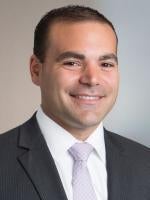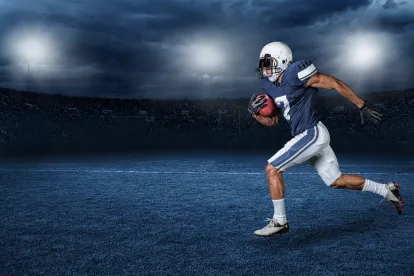Today, General Counsel Jennifer Abruzzo issued a very significant memorandum on the status of college athletes as “employees” under the National Labor Relations Act. Statutory Rights of Players at Academic Institutions (Student-Athletes) Under the National Labor Relations Act, GC 21-08 (September 29, 2021).
In today’s memorandum, GC Abruzzo reinstates a former GC Memorandum, GC 17-01, which was rescinded by the Trump Board in 2018, and thereby solidifies the General Counsel’s position on a question left unanswered by the Board in its 2015 decision in Northwestern University: Are college athletes “employees” under the National Labor Relations Act? The memo published today indicates that for GC Abruzzo, the answer is “yes”.
Indicative of GC Abruzzo’s strong stance on the employee status of college athletes, Abruzzo made clear in the memo that the correct term for the athletes in question is “Players at Academic Institutions” and not “student athletes,” a term GC Abruzzo asserts has been used strategically by the NCAA to deprive college athletes of workplace protections. Although the Board in Northwestern University declined to exercise jurisdiction over the University’s scholarship football players and declined to decide whether college athletes are statutory employees under the Act, GC Abruzzo determined that the Board’s decision did not preclude a finding that scholarship football players at private colleges and universities, or other similarly situated Players at Academic Institutions, are employees under the Act.
According to Abruzzo, a finding that Players at Academic Institutions are employees is further supported by statutory language and the policies underpinning the Act, as interpreted by the Board. Noting that the term “employee” is broadly defined under Section 2(3) of the Act with only a few enumerated exceptions—none of which include football players or other college athletes—and that the Board has often applied broad common-law agency principles when determining employee status, GC Abruzzo concluded that the law fully supports a finding that the football players in Northwestern University, and other similarly situated Players at Academic Institutions, are employees under the Act where:
-
The athletes performed a service for the University and the NCAA (i.e. played football), and generated considerable profit and other benefits for the University;
-
The athletes received significant compensation, including financial support for the cost of tuition, room and board, and stipends for other academic and personal expenses;
-
The NCAA controlled players’ terms and conditions of employment by establishing maximum practice and competition hours, rules concerning scholarship eligibility and minimum GPA requirements, and restrictions on the amount of gifts that players may accept; and
-
The University controlled the “manner and means of the players’ work on the field and various facets of the players’ daily lives to ensure compliance with NCAA rules”.
In further support of her position that certain Players at Academic Institutions are statutory employees under the Act, GC Abruzzo cited to the Supreme Court’s recent decision in NCAA v. Alston, where the Court rejected the NCAA’s antitrust defense premised on the asserted “amateurism” in college sports. GC Abruzzo further stated that changing NCAA rules and societal understanding of college sports have upended traditional notions that Players at Academic Institutions are amateur athletes. These changes, as well as increased collective action by college athletes across college campuses, in GC Abruzzo’s opinion, liken Players at Academic Institutions to professional athletes and entitle college athletes to the protections offered under the Act.
GC Abruzzo also took this opportunity to advise Regions, universities, and college athletes that misclassifying these “Players at Academic Institutions” as “student athletes” who are not entitled to the protections of the Act will be pursued, in appropriate cases, as an independent unfair labor practice and a violation of the Act. As such, Regions are instructed to submit all cases involving the misclassification of Players at Academic Institutions to Advice, where GC Abruzzo will have the ability to help shape Board policy on this issue.
Perhaps just as monumental as the body of GC 21-08 are the pronouncements tucked into the footnotes of the memo. Without much fanfare, GC Abruzzo stated that student teachers and research assistants are employees under the Act, noting that she “will continue to maintain the prosecutorial position that student assistants, as well as medical interns and non-academic student employees, are protected by the Act.” Additionally, GC Abruzzo rearticulated elements of her prosecutorial agenda in the footnotes of her most recent memo, instructing Regions to submit cases involving the application of Bethany College (the NLRB declined jurisdiction over religiously-affiliated educational institutions) and Velox Express, Inc. (NLRB found no violation of the Act where employer misclassified employees as independent contractors) to Advice before issuing a decision. Finally, in the very last footnote of the memorandum, GC Abruzzo indicated that, in future cases involving alleged violations of the Section 7 rights of Players at Academic Institutions, she would consider a joint employer theory of liability and pursue charges against the NCAA and other athletic conferences that exercise control over the Players.
Takeaways
Today’s memo from the General Counsel is just one in a series of memos in which GC Abruzzo has taken a pro-labor stance and has made clear her intention to help shape national labor law policy from her position as GC. The memo also foreshadows a much broader application of the statutory term “employee” under Section 2(3) of the Act—encompassing both college athletes and student teachers and research assistants and potentially others. As General Counsel Abruzzo begins to issue complaints and to bring unfair labor practice cases before the Biden Board, we will see if she is able to accomplish her objectives of molding federal labor policy. As always, we will keep an eye on the situation and keep you updated on the latest news from the Board.




 />i
/>i

